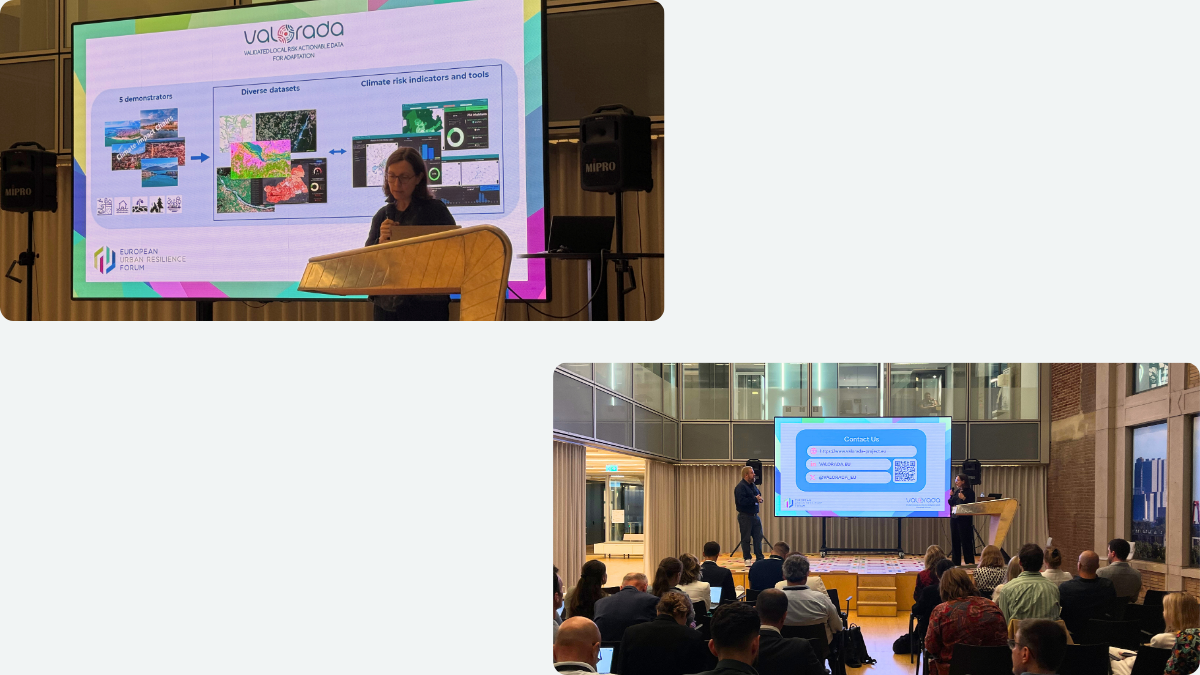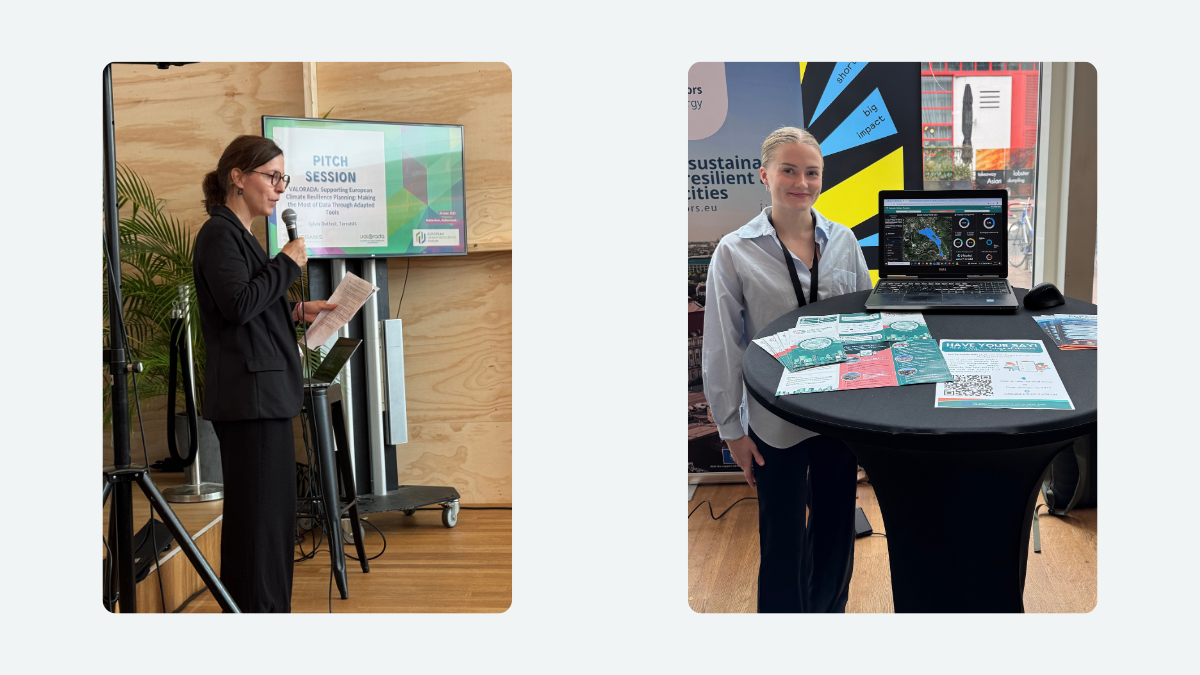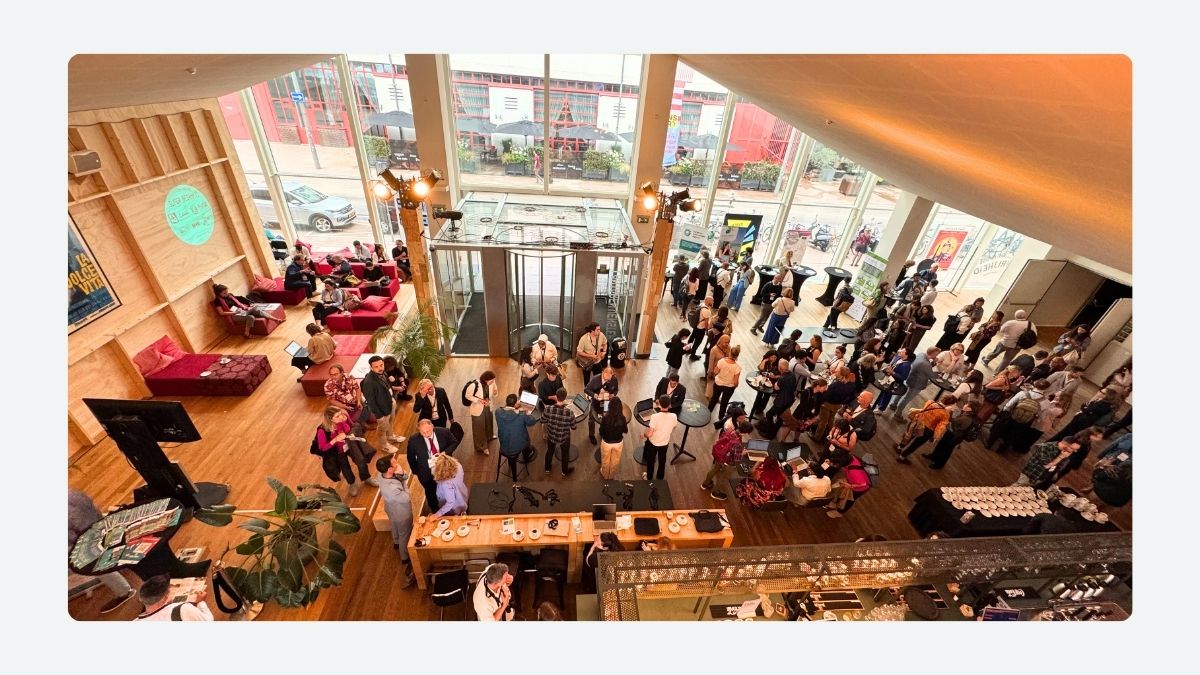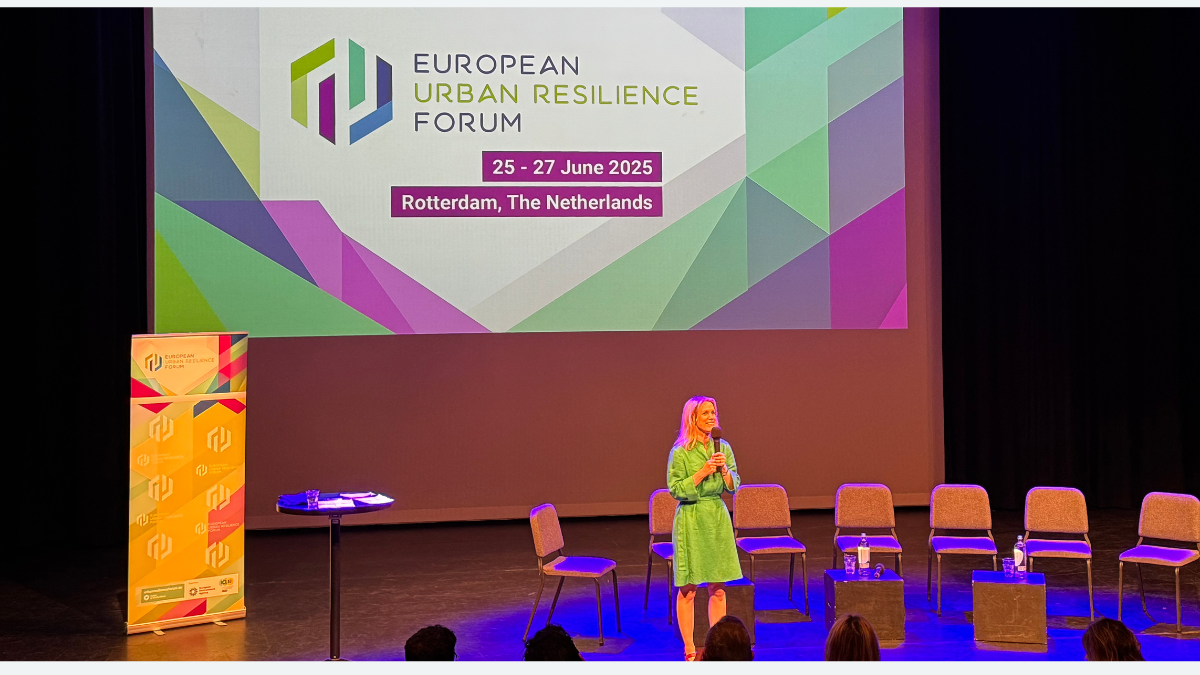From June 25th to 27th, 2025, the VALORADA project took part in the 12th edition of the European Urban Resilience Forum (EURESFO), hosted in Rotterdam at LantarenVenster and co-organised by ICLEI Europe, the European Environment Agency (EEA), and the City of Rotterdam. As a co-organising project, VALORADA was proud to contribute actively to this major European gathering focused on accelerating resilience action.
For over a decade, EURESFO has been a key platform bringing together local and regional governments, researchers, civil society organisations, and EU institutions to exchange on climate adaptation, disaster risk reduction, and strategies to build more resilient cities and territories.
Three days of collaboration, dialogue, and visibility for VALORADA
The three-day programme provided a rich and dynamic agenda of plenaries, technical sessions, mobile workshops, networking opportunities, and site visits. It facilitated meaningful exchange among a wide range of stakeholders committed to supporting Europe’s adaptation to the impacts of climate change.

Day 1 began with the Opening Plenary titled “Resilience in Crisis: Accelerating Action for a Just Future”, followed by a series of high-level panel discussions exploring integrated water resilience, polycrisis preparedness, and financial instruments for risk reduction. In the afternoon, participants joined mobile workshops held across Rotterdam, including one featuring the VALORADA project:
The session “Digital Tools for Climate Resilience: Harnessing Geospatial Data and Local Insights” highlighted a number of tools designed to support local adaptation planning. In this session, Sylvie Duthoit (Head of Projects, TerraNIS SAS) presented two tools developed under the VALORADA project:
- Pixagri, which supports drought risk assessment and the analysis of impacts on agriculture
- Landia, which helps urban stakeholders monitor and manage urban heat island effects
Her presentation demonstrated how data-driven tools, rooted in Earth Observation and co-designed with end-users, can effectively support local authorities in strengthening climate resilience strategies.

Day 2 opened with the plenary “Building a Just and Resilient Future: From Knowledge to Action”. A key feature of the day was the Marketplace, where Horizon Europe projects and European initiatives presented their work, demonstrated tools, and exchanged directly with participants.
VALORADA was pleased to take part in the Marketplace through a dedicated stand on the theme:
“Leveraging local risk data for climate adaptation”, shared with the UP2030 project, which showcased its HydroFlow tool.
Throughout the day, Sylvie Duthoit was available to engage in discussions with cities, researchers, and practitioners on how locally validated, geospatial data can better inform climate risk assessments and support evidence-based resilience strategies.
The VALORADA team also used the opportunity to promote the VALORADA Climate Risk Survey, launched by the Finnish Meteorological Institute (FMI), which aims to gather insights from stakeholders on how climate risk indicators are used in practice and what data needs remain unmet.
Day 3 was dedicated to site visits across the city, offering participants concrete examples of place-based resilience strategies in action, including in the neighbourhoods of BoTu and Oud-Mathenesse.
Looking ahead
The VALORADA team is proud to have contributed to this collaborative and forward-looking forum. EURESFO 2025 confirmed the importance of collective intelligence, practical tools, and cross-sectoral partnerships in building a more climate-resilient Europe. The discussions and connections made during the event will continue to inform our work in the months ahead.
For more information on our tools, services, and upcoming opportunities to engage, please visit our website or contact us directly.
For more updates, follow VALORADA on LinkedIn and YouTube.



